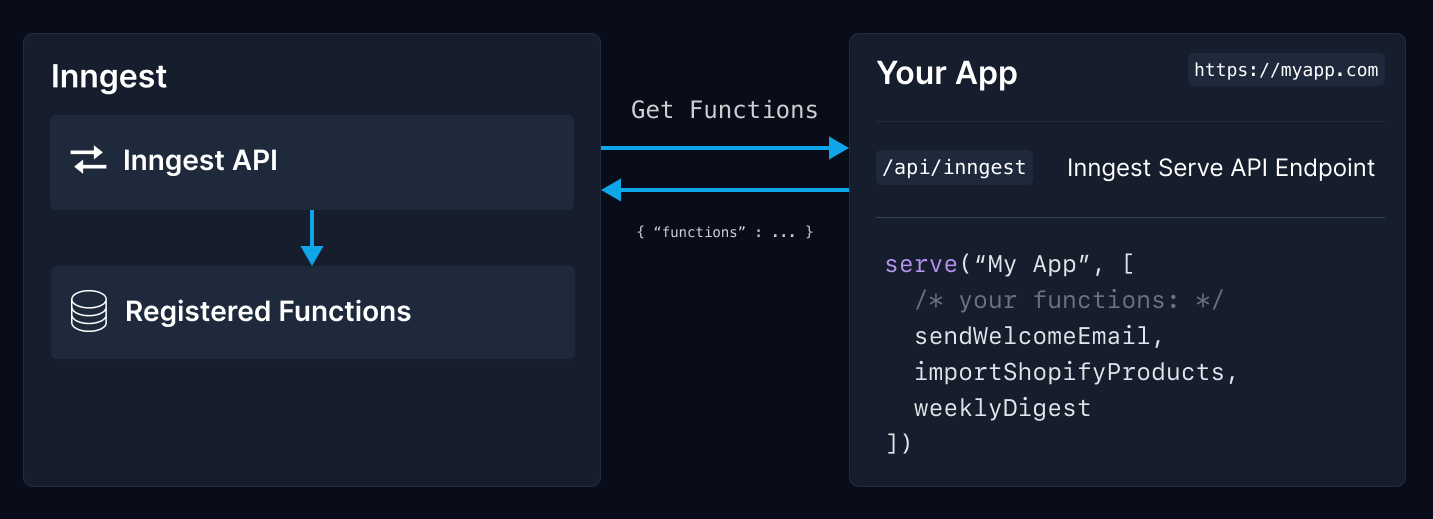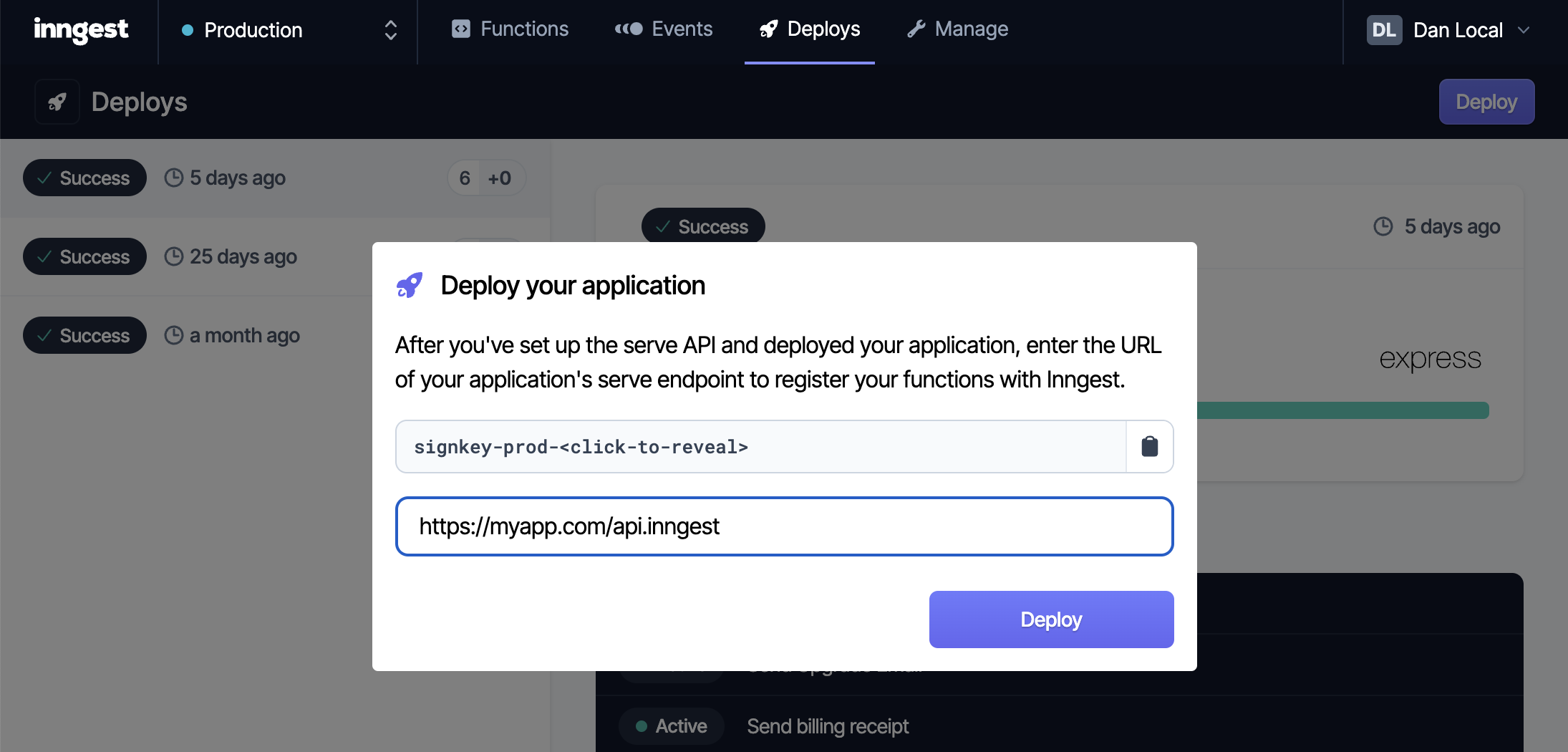Deploying
Inngest allows you to host your function code on any platform then invokes your functions via HTTP. To deploy functions to Inngest, all you need to do is tell Inngest where to find them!
How functions are "deployed"
Since your code is hosted on another platform, you need to register where your functions are hosted with Inngest. For example, if you set up the serve handler (see docs) at /api/inngest, and your domain is https://myapp.com, you'll need to inform Inngest that your functions are hosted at https://myapp.com/api/inngest.
You need to do this every time your functions are updated so Inngest can register the latest versions of your functions.

Inngest uses the INNGEST_SIGNING_KEY to securely communicate with your application and identify the correct environment to register your functions.
How to deploy
Deploying automatically with an integration
Deploying manually via the Inngest dashboard
- Deploy your application with it's
servehandler endpoint to the platform of your choosing. - In the Inngest dashboard, select your environment (e.g. "Production").
- Select the "Deploys" tab at the top then the "Deploy" button at the top right.
- Within the modal add the full URL where your
servehandler is set up and click "Deploy."

Deploying manually via curl
If you're prefer to deploy from your machine or automate this within a CI/CD pipeline, you can send a simple PUT request to your own application's serve endpoint:
curl -X PUT https://myapp.com/api/inngest
This request will trigger your application to register your functions with the Inngest API, securely, using your environment's INNGEST_SIGNING_KEY.
Tip - You'll need to ensure that the latest version of your application is live on your platform before registering with Inngest. Some platforms have rolling deploys that take seconds or minutes until the latest version of your application is live.
This is especially important when setting up your own automated process.